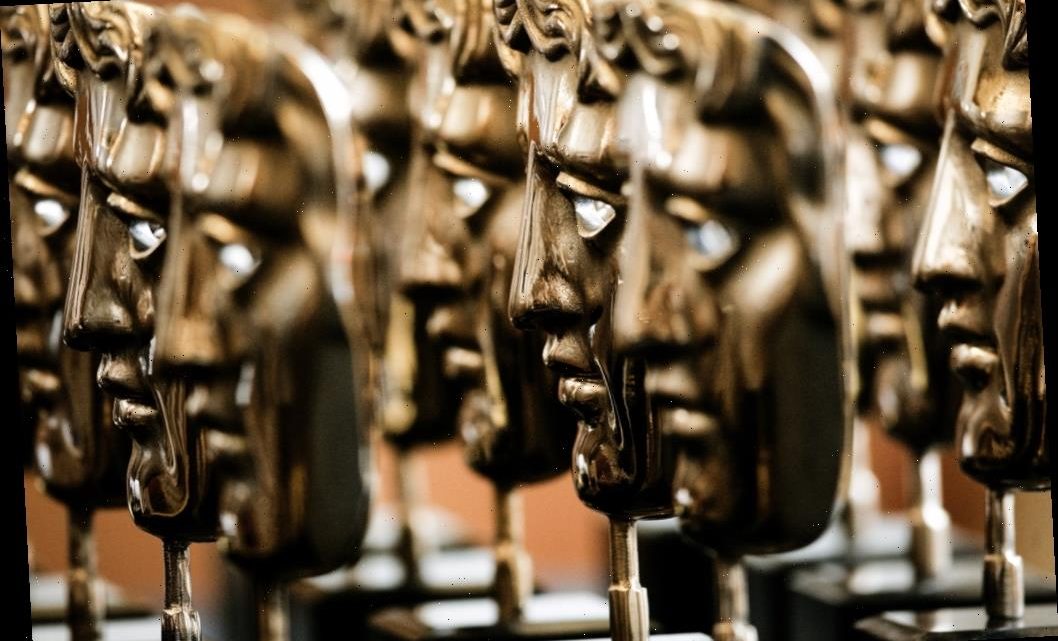
What BAFTA, DGA And PGA Nominations Mean For Oscars; Are They A Sign Of The Pandemic Or Real Change For The Industry And Awards?
03/09/2021When the American Film Institute released their AFI Top 10 Films of the Year list last month, five of the top 10 were movies with Black themes and almost exclusively Black casts, a breakthrough for diversity in the Black filmmaking community on a par with nothing else I can remember when it comes to year-end awards recognition. Those films were Spike Lee’s Da 5 Bloods, George C. Wolfe’s Ma Rainey’s Black Bottom, Regina King’s One Night In Miami, Shaka King’s Judas and the Black Messiah and Disney/Pixar’s animated Soul.
It looked, at least in terms of diversity for the Black community, that this would be a landmark year, and it may still be with the Oscar nominations not due until Monday, and three of those films making the list of 10 Best Picture contenders on the Producers Guild list released yesterday, a usually reliable source for awards pundits.
However, with two other past key indicators of sentiment among Oscar voters — BAFTA and DGA — releasing their nominees this morning, their respective five nominees for the year’s best in their top categories included not a single one of those Black-themed films in a year full of rich possibilities.
For the DGA, the big advances towards diversity did include Beijing-born Chloé Zhao continuing her awards-season rout with Nomadland in contention against Britain’s actress-turned-director Emerald Fennell for Promising Young Woman on DGA’s list for Outstanding Directorial Achievement, the first time two women have appeared simultaneously on the DGA list. They will compete with Mank’s David Fincher (the only director previously nominated), The Trial of the Chicago 7’s Aaron Sorkin and Colorado-born Korean-American Lee Isaac Chung’s Minari. It also reinforced what are generally considered the front-running films, no shockers here. In their relatively new First-Time Feature Filmmaker category, the DGA did recognize Regina King’s first helming effort One Night In Miami, and Rahda Blank’s The Forty-Year-Old Version to join the guys (Sound of Metal’s Darius Marder, The Father’s Florian Zeller and Mexico’s Fernando Frias de la Parra for I’m No Longer Here).
Considering its rout on the critics circuit, you would have to consider Zhao the frontrunner at this point — definitely the one to beat here to become only the second woman ever to win at DGA (or the Oscars for that matter) since Kathryn Bigelow became the first and only for The Hurt Locker in 2010. Obviously the Hollywood guilds are key indicators of real Oscar momentum, and with a PGA nomination for Nomadland yesterday, and a leading seven nods at BAFTA today, Searchlight’s film is right on target to knock out the competition.
Some roadblocks though still exist, so don’t count your Oscars until your name is engraved. Nomadland is a non-starter at WGA since it was not eligible there and will be AWOL at that ceremony, and it likely will be an also-ran at SAG despite a nomination for star Frances McDormand. The lack of a Cast nomination may — or may not — be a bump in the road. SAG’s announced hourlong ceremony, with winners taped in advance on Zoom calls, may reduce the buzzy effects of a win — think the game-changing victory of Parasite last year — in this strange season. I would look instead to PGA’s ceremony on March 24 as a do-or-die momentum moment for Nomadland. If it wins there, it might be smooth sailing, but if it loses, say to Chicago 7, comparisons could start being made to the year The King’s Speech stunned The Social Network (ironically also written by Sorkin) which had swept everything including the Globes and Critics Choice, only to be stopped in its tracks by PGA on its way to a big Oscar triumph.
The big question also remains about how is the pandemic — the closure of theaters, watching movies online and on TV — affecting the nominees being put forth?
But let’s talk about those crazy BAFTAs, OK?
The concerted effort to diversify the BAFTAs after widespread criticism last year over their lack of female directing nominees, as well as a perceived lack of diversity overall, really paid off in acting and directing categories. What also paid off was in essence returning the BAFTA ceremony to the Brits themselves — but at the cost of being any kind of must-have reliable measure of how the Oscar winds are blowing. BAFTA and the Motion Picture Academy have about 500 or so voters in common (not sure of the exact number, but its significant). Acting and Directing categories however are now juried during the revamped nominations process and the results of trying to make it all an even playing field, for smaller indie British films in particular, had the effect of KO’ing more heavily campaigned and marketed Oscar contenders. Not on BAFTA’s list today are such expected Oscar nominees as Carey Mulligan, Viola Davis, Gary Oldman, Amanda Seyfried, Sacha Baron Cohen, Olivia Colman, Glenn Close, Sophia Loren, Jodie Foster, Delroy Lindo, etc., etc. The list goes on. Fincher, Sorkin, Fennell, King and Spike Lee are among those AWOL in Director.
Instead, acting contenders are lesser known and campaigned, if worthy, and include Bukky Bakray, Wunmi Mosaku, Adarsh Gourav, Niahm Algar, Kosar Ali, Ashley Madekwe and Barry Keoghan. Directors include an impressive and encouraging four women among six nominees including frontrunner Zhao but also Shannon Murphy, Jasmila Zbanic and Sarah Gavron. The latter is nominated for Brit film Rocks, about a diverse group of school girls; it joined Nomadland as co-leader in terms of overall nominations. It does not even appear on the Oscars’ list of 366 eligible films, and neither do other Brit movies like Calm With Horses or County Line that drew some acting nods from the very indie-centric list BAFTA turned out early this morning.
At first glance, because of those new juried categories, BAFTA had more the feel of the British Independent Film Awards than what BAFTA has been in the past few years. In fact, several years ago, BAFTA made a sweeping change of another kind in moving their ceremony in front of the Oscars and making eligibility more in line to match what the American Academy was doing. The results today indicate, Paul Revere and Oscar be damned, that the British are taking back their awards, and with it any status as a good barometer of what we will see come Monday when it is Oscar’s turn. One encouraging note is the deep love shown celebrated international films including four noms for Thomas Vinterberg’s Another Round, as well as the Bosnian Quo Vadis, Aida?
The fact is, there has been a deepening chasm between the two academies when it comes to their Best Picture choices in recent times. Since 2004, BAFTA has matched Oscar’s pick just six out of 16 times, including the past six years in a row when they differed. With Nomadland they may have their best chance to match once again BAFTA’s Best Film with Oscar’s Best Picture. We shall see.
And speaking of that BAFTA Best Film category, the British Academy chooses only five nominees as opposed to AMPAS which has up to 10 (and as of next year back to a solid 10). Despite all the pats on the back BAFTA has been giving itself for diversity today, and congrats on that, its contenders for the biggie award of the night is solidly white. Consider this: The Father is about white people dealing with dementia; The Mauritanian is about white lawyers defending a suspected 9/11 terrorist; Nomadland is about white Americans dropping out of society and taking to the road; Promising Young Woman is about white thirtysomethings dealing with issues going back to school days; and The Trial of the Chicago 7 is about white lawyers defending and prosecuting six white (and one Black) males for causing a riot at the 1968 Democratic Convention. I can’t argue with the quality of this quintet, but maybe it is also time for BAFTA to expand the number of nominees for this category in order to be as inclusive as they are trying to be in acting and directing.
As mentioned previously, this has been an excellent year for Black stories being told on the screen. The Best Film lists put forward today by BAFTA and the top five directors at DGA don’t really reflect that fact, but there can be no question that in other ways, especially for women, progress is being made. Still, as blazing headlines from Harry and Meghan’s Oprah interview reinforce, we still have a long way to go on issues of racism — intended, systemic or otherwise. The arts can set things on a path of reflection if not correction, but it is also up to these bodies of voters (BAFTA, Globes, Oscars — all of you) to try and help bring attention also to those awards-worthy films that attempt to address what is wrong in our respective societies..
Oh, and one shocking statistic still remains when it comes to BAFTA. Denzel Washington, a nine-time Oscar nominee and two-time winner, has yet to ever, ever be even nominated by the British Academy. This year it kept that record intact by denying a Best Film nomination to Ma Rainey’s Black Bottom, a film championed and produced (with Todd Black) by none other than — Denzel Washington.
Just sayin’.
Read More About:
Source: Read Full Article









